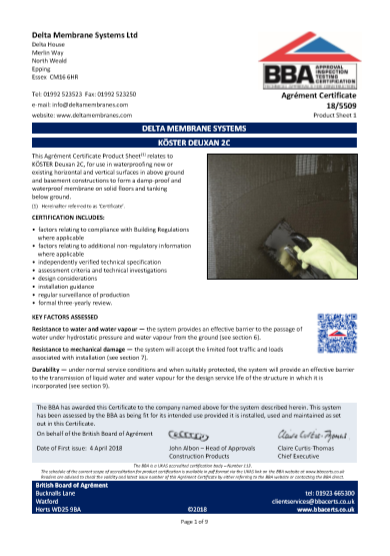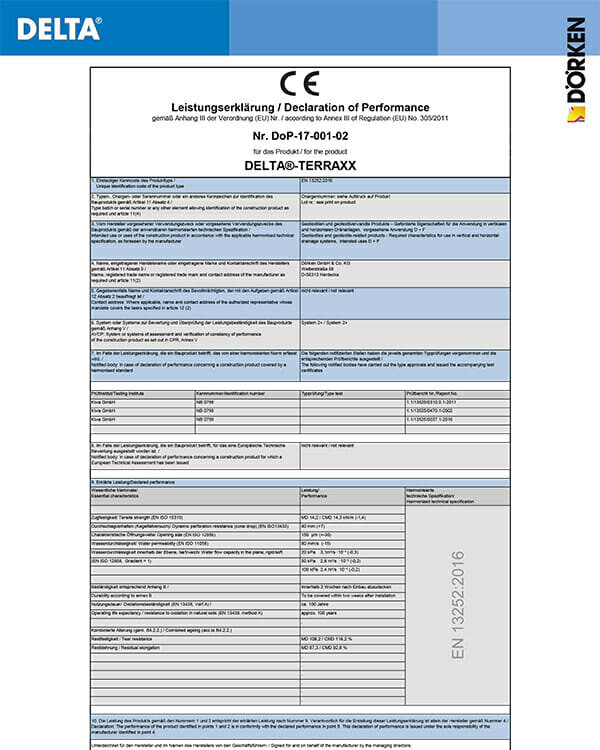
There is a wide choice of structural waterproofing materials available in the market and it can be difficult to determine the best option for your project.
We understand the complexity and competitiveness of the industry and the challenges this brings for manufacturers seeking to improve margins, reduce costs and improve predictability. Whether you’re involved in the specification, procurement and/or installation, we understand the challenges you face including managing financial risks, efficient delivery, or meeting legislative or environmental requirements.

When researching waterproofing materials, you will notice that the price differs widely from manufacturer to manufacturer. Rule of thumb – it is not always advisable to look for the cheapest! It’s always best to look for durable materials. It should be able to withstand exposure to water and moisture over time. This will ensure that the building structure is protected from water damage and that the waterproofing system remains effective in the long term.
Another critical factor is breathability. Breathable materials allow water vapour movement through the building structure, which helps prevent mould and mildew growth. When water vapour cannot escape from within a building, it can create the ideal condition for mould and mildew growth.
Choose waterproofing materials that will serve you well. With potentially heavy consequences (from hefty fines to imprisonment) for using or specifying products in the UK that do not meet the mandatory legal requirements, it is strongly advisable to check the source of products you are planning to specify, use or install.
All manufacturers should be able to provide you with their CE Mark certification and Declarations of Performance (DoP) as a minimum.
Therefore, you need to look for reputable companies to ensure you’re building is compliant with said standards. Check out companies like ARDEX. They’re known for their high-quality and durable products commonly used in both commercial and residential construction projects.
Product Credibility
A BBA Agrément Certificate relates to the quality and performance of a product. Many manufacturers undertake costly and comprehensive assessments of their products, which include laboratory tests, on-site evaluations, quality management checks and inspections of production. If they meet these requirements, they are awarded a BBA Agrément Certificate.

CE Marking is a compulsory legal requirement. By placing a CE mark on a product, the manufacturer is declaring, conformity with all the legal requirements needed to achieve CE marking status. The manufacturer is thus ensuring validity for that product to be sold throughout the EEA (European Economic Area).
Regulation (EU) No. 305/2011 (Construction Products Regulation, or CPR) of the European Parliament and of the European Council is a regulation that lays down harmonised conditions for the marketing of construction products. Regulation EU No. 305/2011 requires all Cavity Drain Membranes/Cavity Membranes hold the CE Mark and have a DoP. Responsibility for ensuring CE Product marking lies with the EU based manufacturer, importer or distributor of that product.
Look for products that come with a warranty. This can provide added peace of mind and protection against defects or issues with the product. It would help if you also looked for product reviews from other customers and professionals in the industry. This can show how well the product has performed in the past.
It’s also best to look for manufacturers that provide technical support and assistance with installation and maintenance. This can be a good indication of the manufacturer’s commitment to customer satisfaction.
